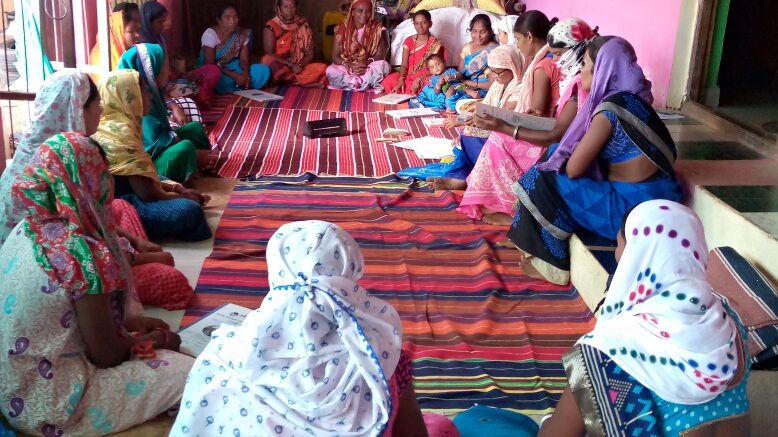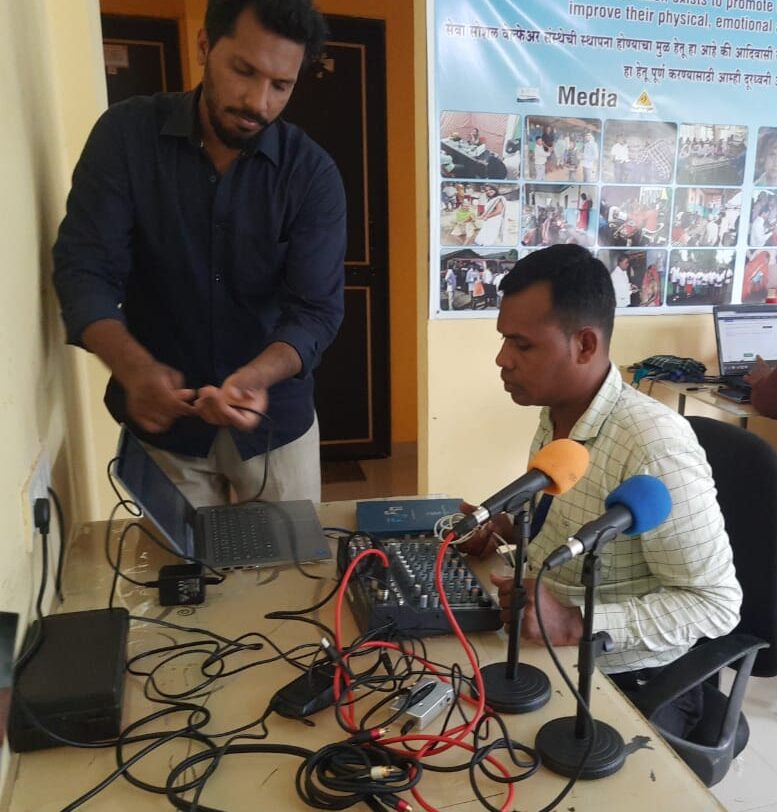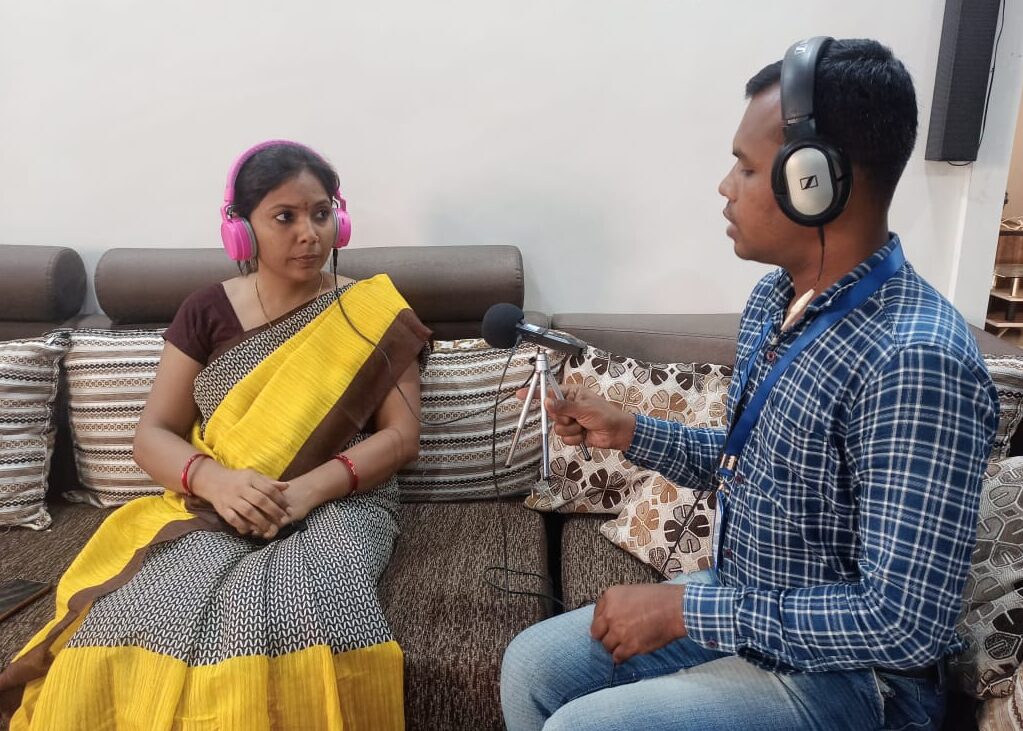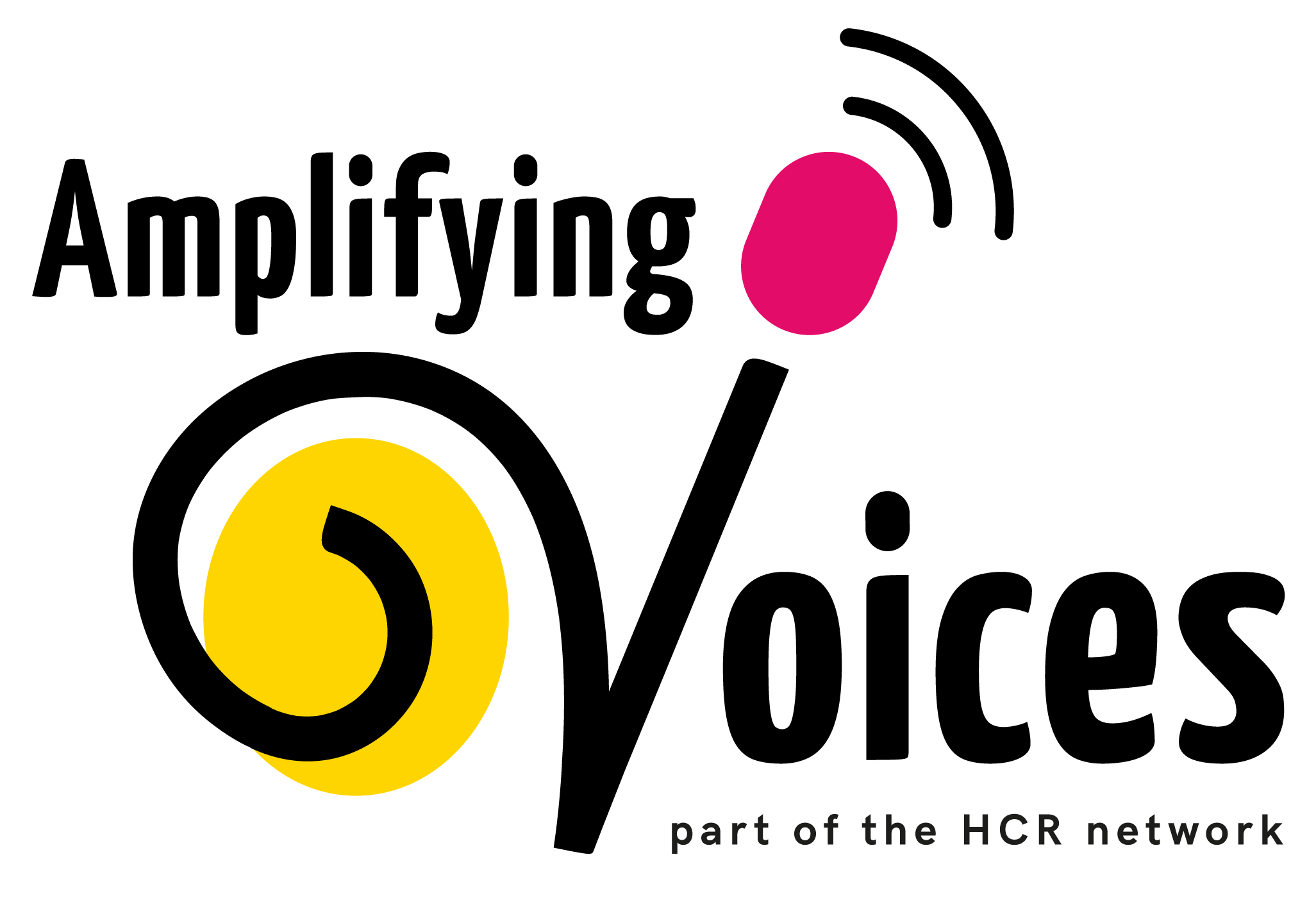
Vaccine readiness in Adivasi communities
The news from Seva, our partner in Maharashtra, India, is that despite Covid-19 spreading rapidly even in the most remote Adivasi villages, communities that have speakerboxes programmes are resisting the worst of the pandemic through robust hygiene practice and vaccine readiness.

Sam from Seva provides training to project volunteer.
In Dhule district, Seva had trained a team from another partner organisation (much the way that Amplifying Voices has provided training and support to Seva) to support local community-led development using regular podcasts played over speakerboxes.
In a very encouraging report from community volunteers in the villages in Dhule district we heard the following comments:
“Earlier, the women of the village had not been vaccinated against Covid-19. After listening to the doctor’s interview in the audio program, 28 women from the village got vaccinated.”
“We didn’t know the importance of wearing masks, so we never wore one. But repeatedly listening to programmes on importance of masks we have started wearing masks and we can see other people wearing masks.”
An important feature of the speakerbox programmes is that they form part of ongoing conversations about a wide range of community concerns, rather than trying to push through changes in a single message. Having the programmes available locally also means that people can listen to podcasts over and over and discuss the content with each other.
For example:
“Woman started sending their daughters to school as they listened to the program about the importance of girl education. Initially they were hesitant due to long distance to school, but now there is a change.”
Conversations on the speakerbox programmes are effective because they address concerns that the villagers talk to the teams about, and regularly tell stories from the villages. Interviews with experts such as doctors are effective because the questions are questions that community members want to ask, and the interviewers encourage doctors to speak in terms that normal people can understand and respond to.
In a world where vaccination programmes are hampered by resistance and distrust, we are delighted that these Adivasi communities are choosing to resist the virus and that local voices are promoting vaccine readiness.

Project worker interviews an Adivasi woman
